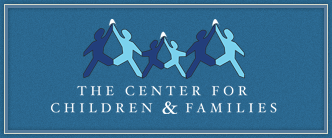
With the new Family Lifestyles and Heart to Heart projects, researchers at the University of Notre Dame’s Center for Children and Families are taking direct aim at two major obstacles to healthy child development: childhood obesity and child maltreatment.
The Center for Children and Families, established in 2001 by Professors John Borkowski and Mark Cummings, works to improve the well-being of children and families through research and intervention.
Projects impact three key areas: income and health disparities; developmental disabilities and psychopathology; and optimization of development, education and learning. The center currently is conducting more than 20 research projects with faculty from economics, sociology, psychology, anthropology, business and other disciplines.
“When you have a research center, you’re bringing in people who have different interests and experiences,” says Julie Braungart-Rieker, professor of psychology and the center’s director. “Yet there’s often a common issue that researchers would like to tackle, and that’s when it gets exciting.”
The Family Lifestyles Project, led by Braungart-Rieker, Jennifer Burke Lefever, research assistant professor of psychology, and Elizabeth Moore, associate professor of marketing, is an interdisciplinary study that examines environmental contributors to childhood obesity. At a time when one in five preschoolers is at risk of becoming obese before age six, a study of this kind is an essential first step to creating successful early intervention programs.
Participants include a diverse set of families with children ages three to five. The research team looks at factors like family dynamics, physical activity, children’s self-control skills and large-scale issues such as the impact the media has on a family’s food choices.
Families visit the center’s lab once, and the team visits family homes twice to study child behavior, talk with parents and evaluate the environment, noting contents of cupboards and proximity of fast-food restaurants and convenience stores. Cultural distinctions are important, and work is done in part by family coaches who are familiar with and sensitive to participants’ cultures.
The Heart to Heart Project, led by Kristin Valentino, assistant professor of psychology, is an intervention program that aims to relieve the emotional, social and cognitive effects of abuse and neglect in preschool-aged children.
The project seeks to determine whether coaching mothers on how best to communicate with their children about daily experiences and emotions will improve a maltreated child’s development.
Participants are families with children ages 4 to 6 who have open cases with the Department of Child Services for substantiated child maltreatment. In order for Valentino’s team to observe effects of intervention, half the participants receive coaching right away and the other half receives coaching after six weeks.
Family coaches visit homes once a week for four weeks, teaching parents communication skills like asking open-ended questions and discussing what their children were feeling and why. Together, the coach and the mom review videotaped sessions of the mom practicing new skills, so she learns to evaluate herself.
“The intervention really builds on the resilience literature,” said Valentino. “Fostering the parent-child relationship and communication are what lead to change and positive development.”